The Czech Republic has expelled 18 Russian diplomats in retaliation following the explosion claim.
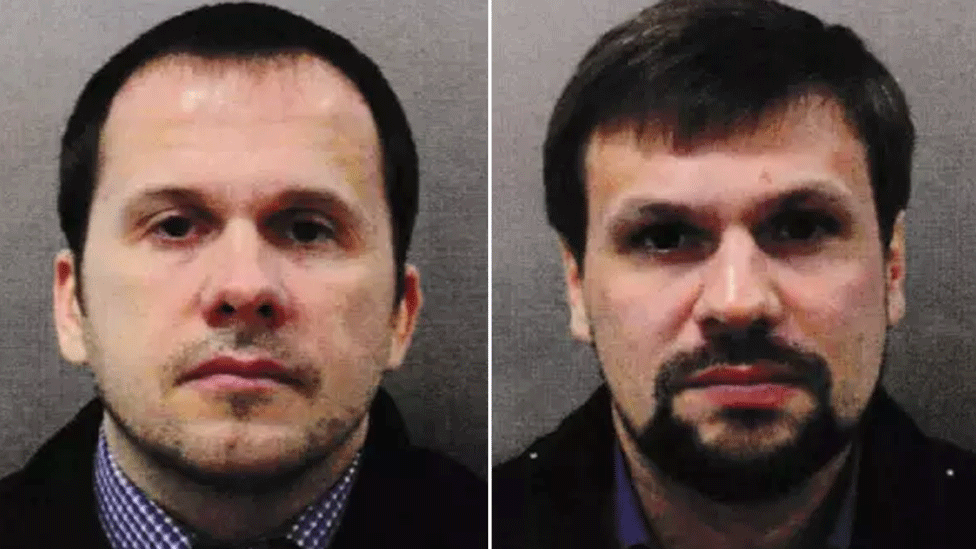
image copyrightMetropolitan Police
Two Russian men suspected of carrying out the 2018 Salisbury poisonings are being linked to an explosion at an arms depot in the Czech Republic.
Evidence links the 2014 explosion, and an attempted poisoning in Bulgaria, to a unit of Russian military intelligence – the GRU – the BBC has learnt.
European intelligence agencies believe the GRU’s Unit 29155 is tasked with sabotage, subversion and assassination.
A senior Russian parliamentarian has called the claim absurd.
Czech authorities say they are expelling 18 Russian diplomats believed to be intelligence operatives in retaliation for the explosion, which killed two people.
Czech Prime Minister Andrej Babis said the country had to react to revelations tying the blast to the GRU.
The country will inform Nato and European Union allies about its suspicions, and will discuss the matter at an EU foreign ministers’ meeting on Monday, its acting Foreign Minister Jan Hamacek said.
A huge explosion tore apart an ammunitions storage depot in a forest in the Czech Republic on 16 October 2014.
Windows in nearby buildings were blown out and local schools were evacuated as emergency vehicles rushed to the scene. The remains of two men – aged 56 and 69 – who worked at the site were found more than a month later.
The blast was assumed to have been an accident.
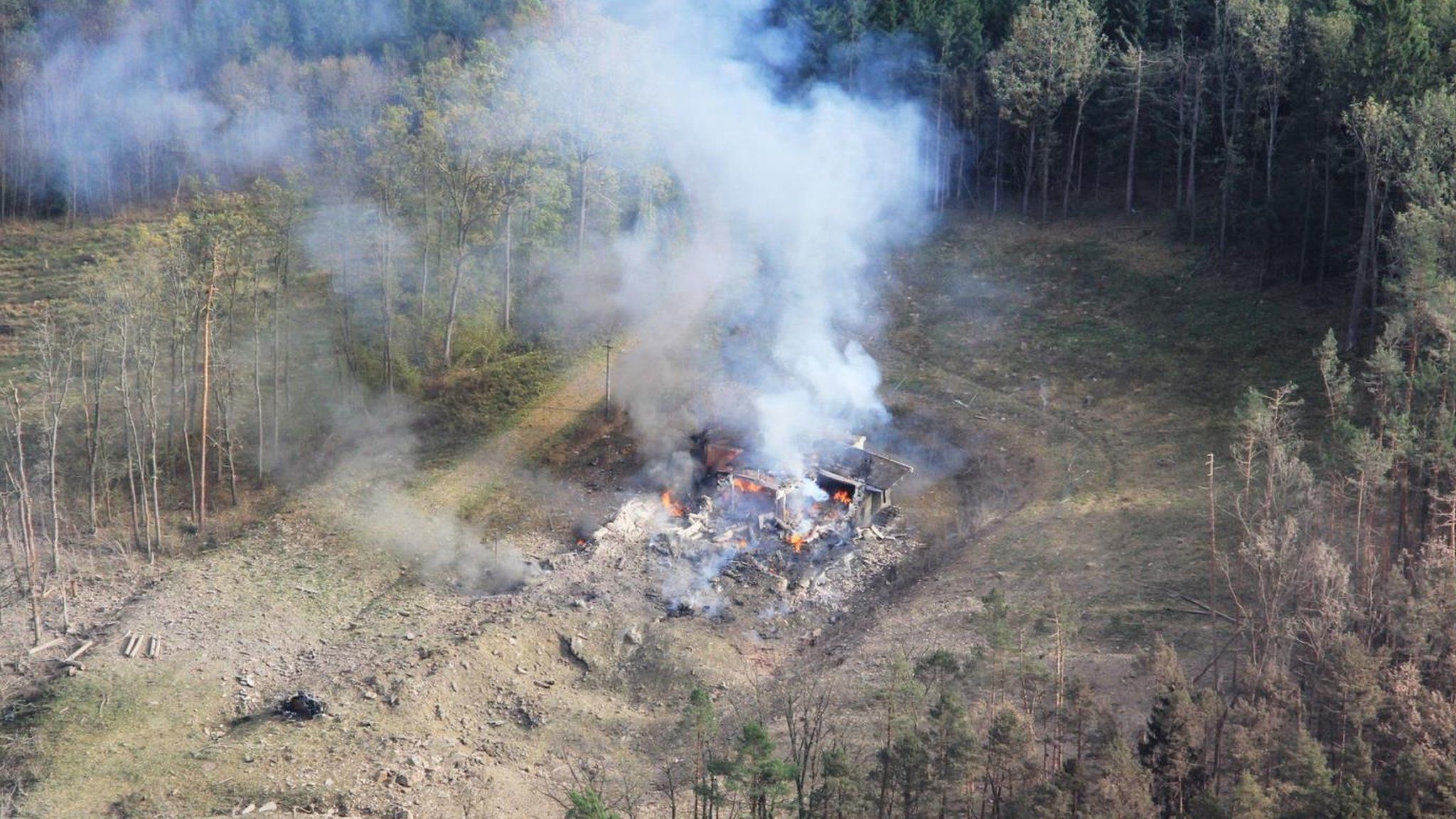
But painstaking detective work by Czech authorities has pointed the finger at Moscow – and Unit 29155 of the GRU.
In the wake of the Salisbury poisoning, European security services have been investigating a series of previously unexplained events.
For Czech police, that included the October 2014 explosion. A crucial find, sources close to the investigation have told the BBC, was an email sent to Imex Group, the company which operated the depot.
It claimed to come from the National Guard of Tajikistan. It asked for two men to be given access to the site for an inspection visit. Scans of their passports were attached. The men were said to be Ruslan Tabarov from Tajikistan and Nicolaj Popa, a Moldovan citizen.
The pictures on the passports match those of the two men accused by Britain of the Salisbury poisoning.
The two men travelled to the UK in March 2018 under the names Ruslan Boshirov and Alexander Petrov.
Both were caught on CCTV at Salisbury and identified by the Metropolitan Police as suspects in smearing Novichok nerve agent on the door handle of the house of former GRU officer Sergei Skirpal.
Skripal and his daughter fell ill while a local woman, Dawn Sturgess, was killed months later by Novichok from a discarded perfume bottle.
The investigative site Bellingcat soon after identified Ruslan Boshirov as Anatoly Chepiga and Alexander Petrov as Alexander Mishkin, both GRU officers.
The pair then appeared on Russian TV denying involvement, claiming they were sports nutritionists who visited Salisbury to see the spire of the cathedral.
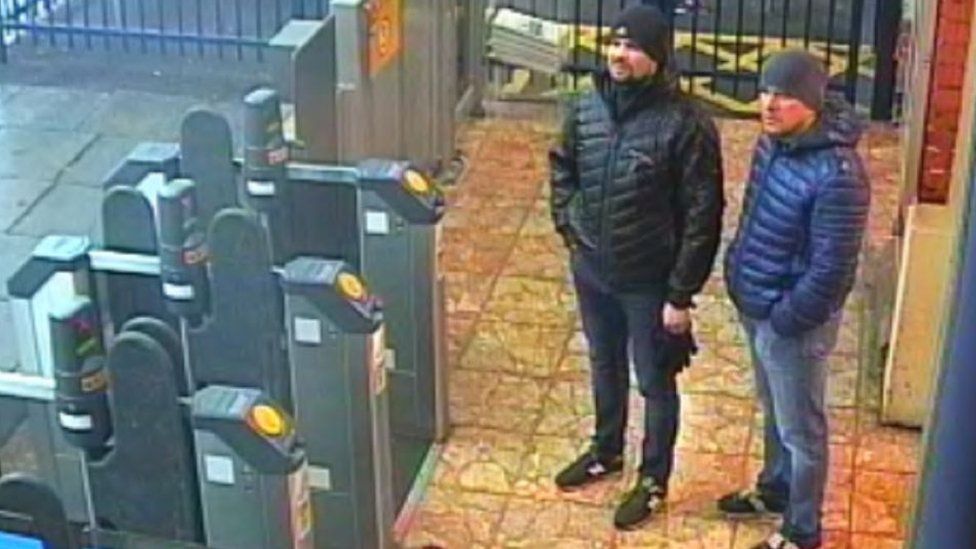
image copyrightMetropolitan Police
On 11 October 2014, the men used the same cover identities they used in Salisbury – Ruslan Boshirov and Alexander Petrov – to arrive at Prague airport.
They stayed in Prague for two days (Chepiga’s presence had previously been noted based on social media posts but not linked to the explosion).
They then booked into accommodation in Ostrava, near the ammunition depot on 13 October. They were booked to stay until the 17 October.
The explosion took place on the 16th and that day the pair headed to Vienna airport to fly to Moscow. The authorities do not appear to know exactly how the depot was blown up.
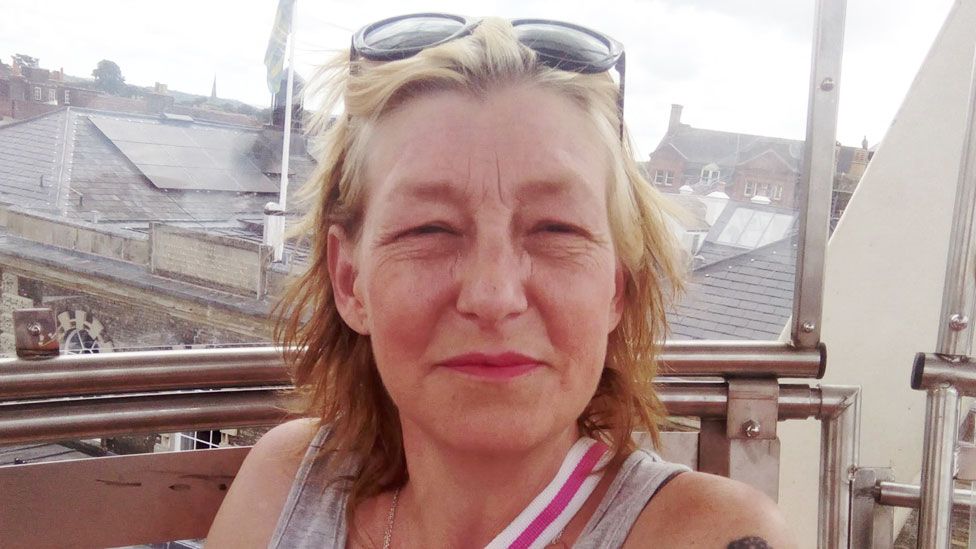
image copyrightFacebook
Another clue, the BBC has learnt, was the email used to request the men’s visit to the arms depot. It was traced to a user in Russia rather than Tajikistan and when entered in a Skype directory linked to a username “Andrey O”.
The commander of Unit 29155 was first reported by the New York Times to be Andrey Averyanov and he is believed to have used Andrey Overyanov as a cover identity.
Why would Russian intelligence blow up the arms depot?
One of the people storing weapons there was a Bulgarian arms dealer called Emilian Gebrev, sources have told the BBC.
That provided another link to Unit 29155.
In April 2015, six months after the Czech explosion, Gebrev fell seriously ill in the Bulgarian capital Sofia. After a month in hospital, he was released but then fell sick again. Despite suspicions, Bulgarian authorities made little progress amid talk it was simply food poisoning.
It was only after events in Salisbury in 2018 that people paid more attention.
A third man, using the name Sergei Fedotov had been identified as coming to the UK to oversee the Salisbury poisoning. And he was also found to have been in Bulgaria at the time of Gebrev’s poisoning.
Bulgarian authorities found that Fedotov and two other men from Unit 29155 had checked into a hotel in the same complex as Gebrev’s office in April 2015 and insisted on rooms with a view of the underground car park.
Surveillance of that car park released by a Bulgarian prosecutor last year shows one man approaching the cars of Gebrev, as well as his son and business partner who would also fall ill.
A toxic substance is believed to have been smeared on the handles – similar to the way Novichok was placed on the handle of Sergei Skripal’s house.
Although he had a return flight booked two days later, Fedotov left the country on April 28th – the day of the poisoning.
It has been reported he was supplying weapons to a number of countries against Moscow’s wishes, possibly including Ukraine, or to other countries in competition with Russian suppliers, including in Asia.
And one business deal may also have brought him into direct conflict with powerful Russian businessmen linked to the GRU.
The explosion at the Czech depot in October 2014 looks like it could have been an initial attempt to hurt Gebrev’s business or issue a warning which was then followed up with an attempt to kill him.
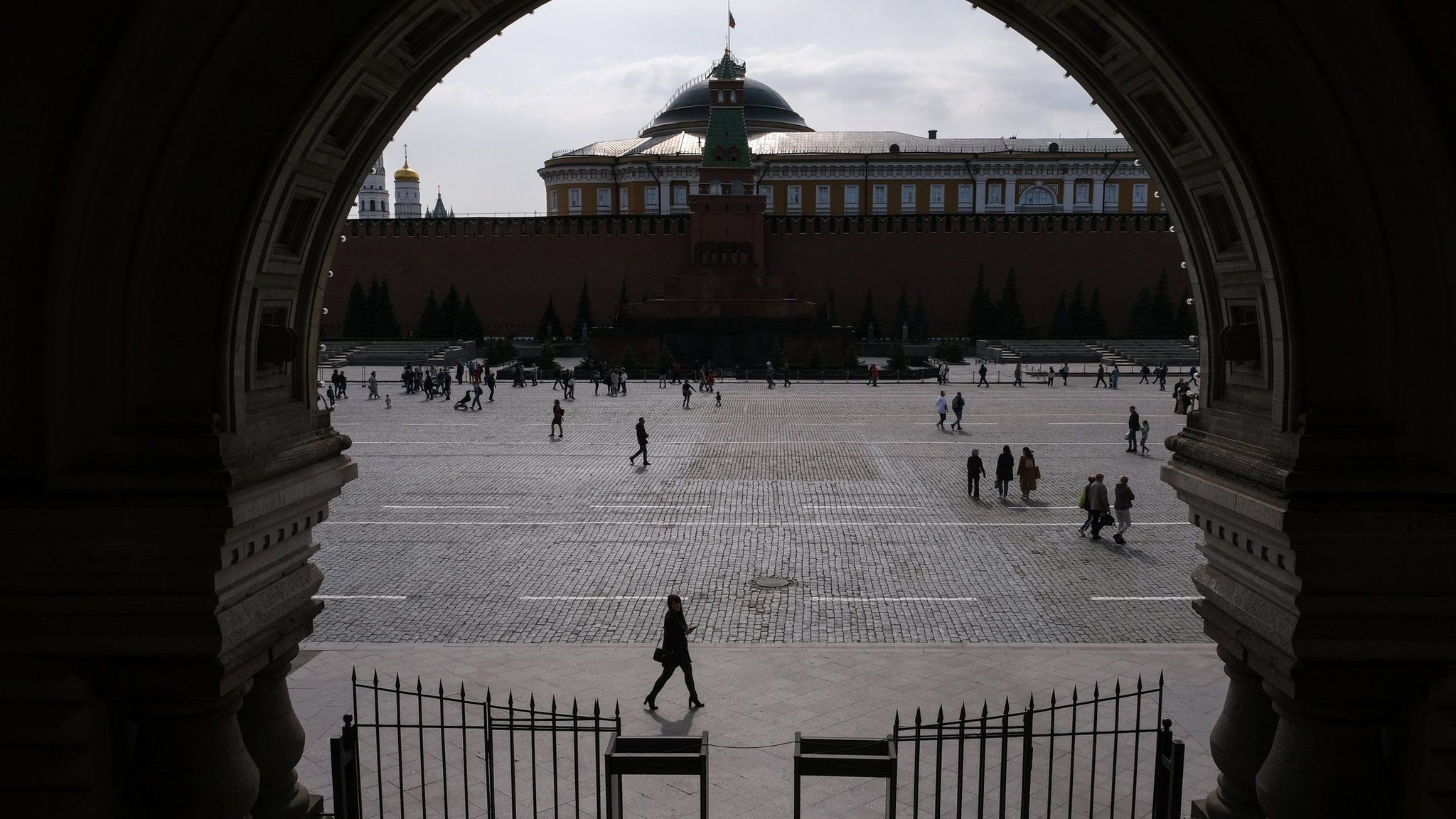
image copyrightReuters
But the only people to die were two innocent Czech men working at the depot. (There were also explosions at Bulgarian arms factories in 2015 although no link has publicly been made.)
On Saturday, the Czech Prime Minister announced evidence linked the explosion to the GRU and said 18 employees of the Russian embassy – identified as intelligence operatives – had to leave the country within 48 hours.
Czech police issued pictures of the two suspects saying they wanted to speak to them. Russian authorities say their constitution prevents the men being extradited.
Czech ministers pointed the finger specifically at Unit 29155. European intelligence officials say its mission is sabotage, subversion and assassination.
They think it numbers around 200 but with only 20 or so of those involved in carrying out operations with the rest support staff.
As well as Salisbury, Bulgaria and now the Czech Republic, the unit has been linked to other operations including an attempted coup in Montenegro in 2016.
A number of European countries are investigating past travel to see if it correlates with suspicious events. That means this revelation may not be the last.
The pair involved in Salisbury and now linked to the Czech explosion have not been seen since they were identified in 2018. But Unit 29155, western intelligence officials say, is still active.
UK Foreign Secretary Dominic Raab said the UK stands “in full support of our Czech allies, who have exposed the lengths that the Russian intelligence services will go to in their attempts to conduct dangerous and malign operations in Europe”.